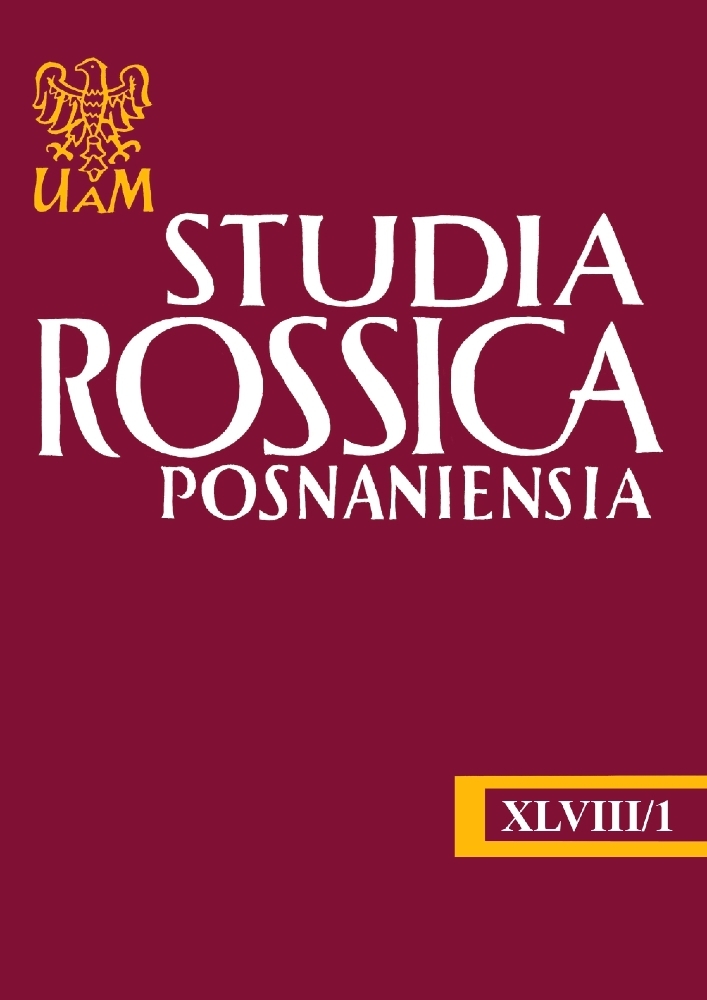Abstract
The purpose of the research is to analyze the content of Russian and Chinese proverbs, identify stereotypical ideas about a lazy person and compare the data of the two languages. Based on the analysis, the perceptual and inferior meanings of proverbs were identified. Perceptual meanings involve native speakers’ stereotypical representations obtained through observations: “a lazy person stays in bed a lot, sleeps for a long time”; “a lazy person tends to sit around most of the time and move just a little and slowly”; “a lazy person is fond of eating, but hates working”; “a lazy person does nothing with his hands”. It was concluded that the perceptual meanings of Russian and Chinese proverbs generally coincide. The following is referred to as the inferior meanings: “the conclusion about the causal relationship between laziness and a lack of necessary food and a warm shelter”; “generalization – a lazy person neither benefits from it themselves nor brings any benefit to the society”; “conclusion about the causal relationship between work/laziness and human life expectancy”. It was concluded that the inferior meanings differ: Russian proverbs represent the idea
that hard work leads to illness and shortens a person’s life, while Chinese proverbs reflect the stereotype “work prolongs a person’s life, whereas laziness makes people grow old”. Unlike the Chinese language, in which laziness is always categorically disapproved of directly, the Russian language reflects a condescending attitude towards lazy people.
Literaturhinweise
Berdâev, Nikolaj. Sudʹba Rossii: kniga statej. Moskva, Èksmo, 2007.
Borŝeva, Ol’ga. „Informativnaâ, obraznaâ i cennostnaâ zony koncepta LENʹ i ih reprezentanty v russkoj idiomatike”. Russkaâ ustnaâ rečʹ. Red. Ol’ga Krŭčkova. Saratov, Izdatelʹskij centr „Nauka”, 2011, s. 19–23.
Čan, Guanmin. Kniga Peremen s illûstraciâmi. Czinanʹ, Izdatelʹstvo Cilu, 2014.
Dalʹ, Vladimir. Poslovicy russkogo naroda: Sbornik v 2-h t. T. 2. Moskva, Hudožestvennaâ literatura, 1984.
Irishanova, Ol’ga. Igry fokusa v âzyke. Semantika, sintaksis i pragmatika defokusirovaniâ. Moskva, Âzyki slavânskoj kulʹtury, 2014.
Kubrâkova, Elena et al. Kratkij slovarʹ kognitivnyh terminov. Moskva, Moskovskij gosudarstvennyj universitet imeni M.V. Lomonosova, 1997.
Molotkov, Aleksandr. Frazeologičeskij slovarʹ russkogo âzyka. Moskva, Russkij âzyk, 1987.
Sunʹ, Sâoûn, Van Sâožuj. „Izmeneniâ v zemelʹnoj sisteme Kitaâ: tradicii i modernizaciâ”. Primenenie prava, 13, 2019, s. 105.
Ševčenko, Daniil, Roman Volkov, Marina Kalinina. „Koncepty «trudolûbivyj čelovek» i «lenivyj čelovek» na materiale russkih i anglijskih poslovic i pogovorok”. Novye tehnologii v učebnom processe i proizvodstve. Red. Aleksandr Platonov, Aleksandra Bakulina. Râzanʹ, OOO „Râzanʹ proèkt”, 2018, s. 506–509.
Teliâ, Veronika. Russkaâ frazeologiâ. Semantičeskij, pragmatičeskij i lingvokulʹturologičeskij aspekty. Moskva, Âzyki russkoj kulʹtury, 1996.
Wen, Duanzheng. Zhōngguó yànyǔ dàcídiǎn [The Big Dictionary of Chinese Proverbs]. Shànghǎi, Shànghǎi Císhū chūbǎnshè [Shanghai, Shanghai Publishing House “Qishu”], 2011.
Zaliznâk, Anna, Irina Levontina, Aleksej Šmelev. Konstanty i peremennye russkoj âzykovoj kartiny mira. Moskva, Âzyki slavânskih kulʹtur, 2012.
Zaliznâk Anna, Aleksej Šmelev. Issledovaniâ po russkoj i komparativnoj semantike. Moskva, Izdatel ʹskij Dom ÂSK, 2021.
Lizenz
Copyright (c) 2023 Lili Wang

Dieses Werk steht unter der Lizenz Creative Commons Namensnennung - Nicht-kommerziell - Weitergabe unter gleichen Bedingungen 4.0 International.

